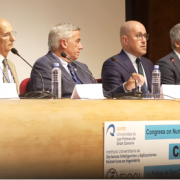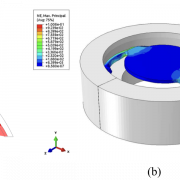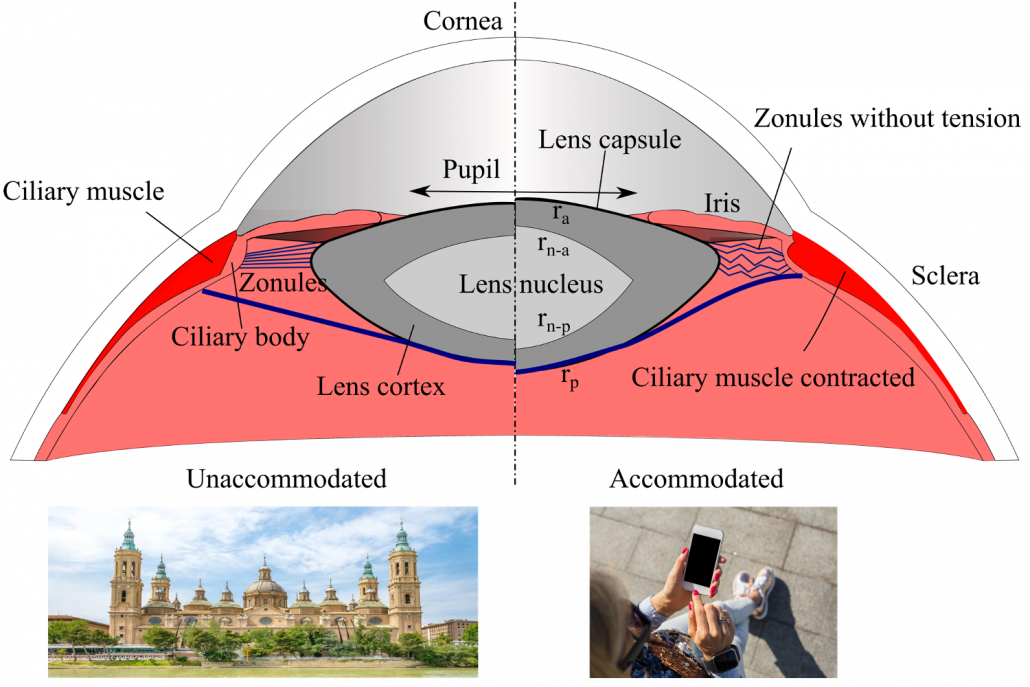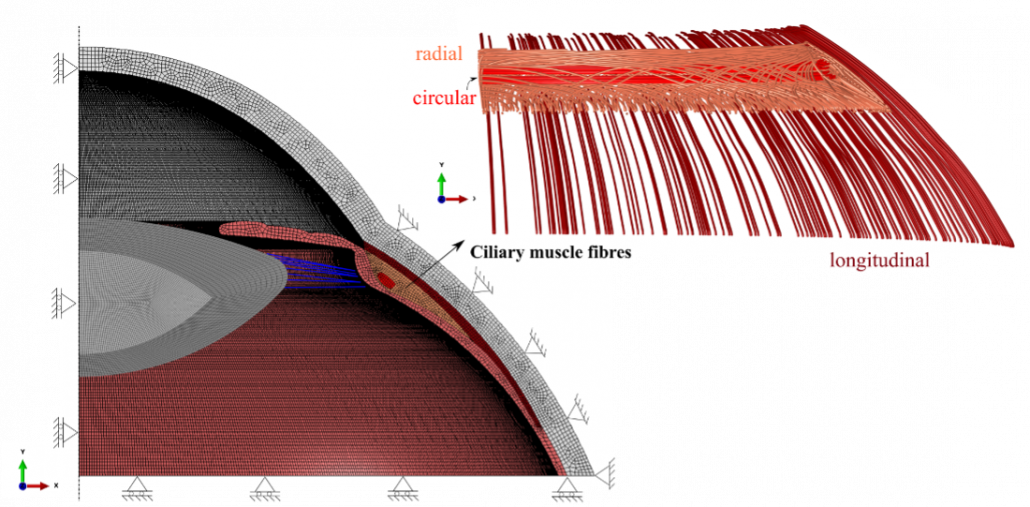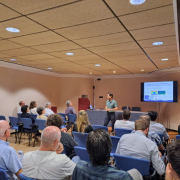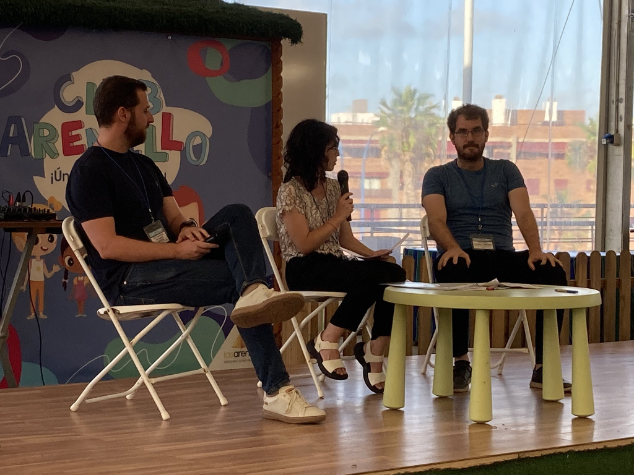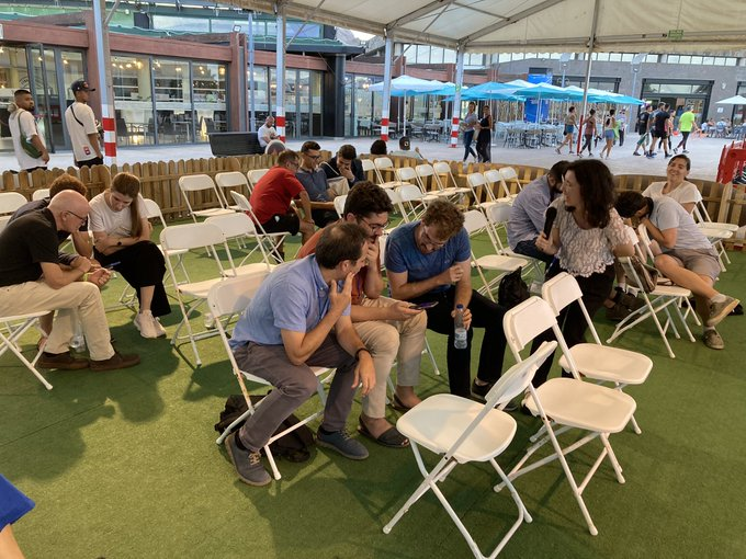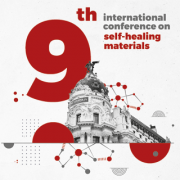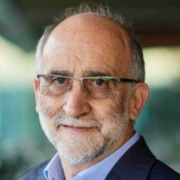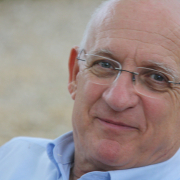About the Congress on Numerical Methods in Engineering CMN-2022
David Greiner Sánchez
The Congress of Numerical Methods in Engineering (CMN-2022) (https://congress.cimne.com/cmn2022/) of the Spanish Society of Computational Mechanics and Computational Engineering (SEMNI) and the Portuguese Association of Theoretical, Applied and Computational Mechanics (APMTAC), was held from September 12 to 14, 2022, at the Palacio de Congresos de Canarias – Alfredo Kraus Auditorium, organized by the Institute of Intelligent Systems and Numerical Applications in Engineering (SIANI) of the University of Las Palmas de Gran Canaria (ULPGC), in collaboration with the Department of Mathematics, the Department of Civil Engineering and the School of Industrial and Civil Engineering (EIIC), of the ULPGC.
On Monday, September 12 at 2:00 p.m., its inauguration took place in the chamber room, with the presidency of the Rector of ULPGC, Luis Serra Majem, the President of APMTAC, José César de Sá, the President of SEMNI, Elías Cueto, the local representative of APMTAC, Gil Andrade Santos, and the Chairman of the organizing committee, David Greiner.
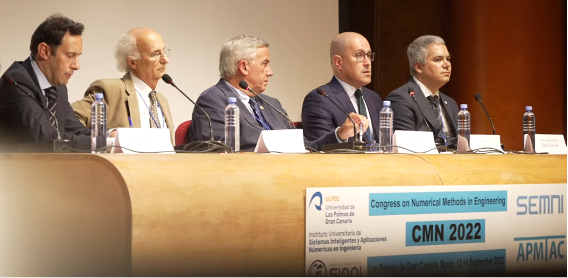
Inauguration of the Congress of Numerical Methods in Engineering (CMN-2022).
The CMN Congresses of the Spanish society began to be organized by SEMNI (then called Spanish Society of Numerical Methods in Engineering) also in Las Palmas de Gran Canaria (1990), followed by editions in La Coruña (1993), Zaragoza (1996), and Sevilla (1999). Afterwards, the conference follows a joint biennial organization with APMTAC in Madrid (2002), Lisbon (2004), Granada (2005), Porto (2007), Barcelona (2009), Coimbra (2011), Bilbao (2013), Lisbon (2015), Valencia (2017) and Guimarães (2019). This CMN-2022 edition has been held one year later than the initially scheduled date (2021) due to the incidence of the Covid-19 pandemic, this being the first CMN Congress after the change of name of the Spanish Society, although its acronym SEMNI remains the same.
In this congress there were six Plenary Speakers: Karen Willcox (University of Texas at Austin, USA), Antonio Huerta (Polytechnic University of Catalonia, Spain), Carlos Pina (National Laboratory of Civil Engineering LNEC, Portugal), Renato Natal (University of Porto, Portugal), Paulo Flores (University of Minho, Portugal) and Ricardo Vinuesa (KTH Royal Institute of Technology, Sweden); a Session in Tribute to the former president of SEMNI Manuel Casteleiro, and a Session to celebrate the 80th Anniversary of Jacques Periaux (first president of the ECCOMAS society). The participants in the congress were able to present their research papers in twelve proposed thematic sessions and a general program distributed in four parallel sessions, covering the main areas of computational mechanics and computational engineering, with a total of more than 150 contributions accepted after scientific peer review (coming from Spain, Portugal, Italy, Poland, Belgium, France, Luxembourg, Switzerland, Germany, the United Kingdom, Mexico, Chile, the United States, Canada and Australia). The book of proceedings is available on the website of the CMN-2022 congress for download, including both the accepted abstracts and full papers.
(https://congress.cimne.com/cmn2022/Doc/Ebook_CMN_2022.pdf)
In addition, during the CMN-2022, other complementary activities were held, among which the following stand out: a) Science-Chat, on the terrace of the Las Arenas Shopping Center, adjacent to the congress, on Tuesday afternoon; b) Career Forum, during lunch on Wednesday, where Juan José Ródenas, David Pardo, Emilio Martínez-Pañeda and Matteo Giacomini acted as mentors; c) a Tutorial / Short Course of «Introduction to Artificial Intelligence and its application in Computational Fluid Dynamics», taught by Ricardo Vinuesa; d) a round table on «European and National Research Funding: Projects and Human Resources», moderated by Irene Arias, with the participation of Juan Alberto Corbera and Aridane González, respectively, director of research human resources, and director of research and technological development, both attached to the Vicerrectorate for Research and Transfer of the ULPGC, and the success cases of ERC Starting Grants: Marcos Latorre (Polytechnic University of Valencia) and Irene Arias (Polytechnic University of Catalonia); and, e) meetings of the executive committees, and of the annual assemblies of the SEMNI and APMTAC societies. The social program included a visit to the «Casa de Colón» Museum of the Cabildo de Gran Canaria, located in the historic neighborhood of Vegueta, next to Plaza de Santa Ana and the Cathedral of Las Palmas de Gran Canaria, prior to the Congress Gala Dinner. During it, the 2021 and 2022 research prizes of the SEMNI and APMTAC societies were awarded.
Finally, it is necessary to thank everyone, the invited speakers, the members of the organizing committee, scientific committee and local organizing committee, the reviewers of the abstracts and papers, the organizers and chairs of the sessions, the awardees, the speakers and attendees, as well as the technical secretariat of CIMNE congresses, and the staff of the Palacio de Congresos de Canarias – Alfredo Kraus Auditorium, for their participation in this Canarian edition of CMN-2022. In it we lived and enjoyed magnificent days, also accompanied by good weather and atmosphere, both meteorological, scientific and human.

